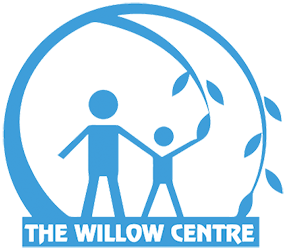Prevention and Early Mental Health
Prevention of some developmental difficulties starts with monitoring children’s overall development early in life. For others like child’s attachment to their caregivers, there is evidence that prenatal and even preconception understanding of parental attachment difficulties and receiving support to address those, can prevent attachment difficulties in children. Our team has extensive expertise in recognizing the earliest signs of developmental concerns and attachment difficulties and is dedicated to help families learn more about their child progress and age specific developmental expectations.
Monitoring the overall development as early as one month can determine the risk for developmental delays and answer questions parents might have regarding their child’s overall wellbeing, before they become concerns.
Early Developmental Screening at The Willow Centre
Ages and Stages Questionnaires for children from 1 month to 5 years of age allow families to learn about their child’s progress along the following developmental domains: communication, physical development, cognitive development, as well as social-emotional development (also known as Mental Health) – see link for a detailed description [https://agesandstages.com/free-resources/articles/7-behavioral-areas-screened-by-asqse-2/].
The ASQ consists of a series of parent / caregiver completed questionnaires that screen and monitor the child’s development, combined with observations of child’s play and family interactions.
The results determine if the child’s development is on track or should receive a more in-depth assessment to determine the need for specialized services.
The ASQ results include individualized recommendations and Intervention Activities.
Our clinicians combine an evidence-based tool (which is endorsed by the Infant and Early Mental Health Promotion at SickKids) with their extensive clinical expertise to support healthier child-parent interactions and parenting approaches aimed at scaffolding the child’s overall development.
Please note that this is not a diagnostic tool, and we will not be able to provide you with a diagnostic at the completion.
At our Centre the screening typically includes 3 sessions as follows:
- parents complete the Intake forms either electronically or at the time of the first session.
- one session with parents only to discuss concerns, short developmental history and family context; parents go home with a set of questionnaires for them and other caregivers involved in caring for the child (if applicable). When completed, the questionnaires are brought back to us for scoring / review.
- one family session for play / interactions observation and reflections with parents.
- one session with parents for feedback and recommendations.
Follow-up monitoring sessions available – frequency depends on each family / child needs.
Who should complete a screening? Developmental screening with ASQ is for all children under 6 years old, regardless if parents have or do not have concerns about their development; it is like a development checkup.
When to use ASQ to monitor your child’s development? Children benefit from having their development monitored at any age. Adding an evidence based screening tool, like ASQ, when we “look” at a child’s development, can more accurately, and earlier, detect developmental concerns and avoid late diagnosis and supports. “Brains are built over time, from the bottom up, through an ongoing process that begins before birth. Simple neural connections form first, followed by more complex circuits. The connections that form early provide either a strong or weak foundation for the connections that form later. Our early experiences shape our brain architecture, which provides the foundation for all future learning, behavior, and health.“ [See link for more information https://developingchild.harvard.edu/key-concept/brain-architecture/ ]
- At 1 month of age [for children born prematurely – we consider the adjusted age until the child turns 2 years old]
- At anytime before your child turns 6 years of age, either you have concerns or not.
- When you have concerns regarding one or more areas of development.
- When someone else had expressed concerns about your child development.
- When your child is on the waiting list for Developmental Assessment or Autism Spectrum Disorder Assessment.
Our clinicians provide individualized support for children and families while the child is on waiting list for specialized services / treatment / intervention after a positive diagnosis of Developmental Delay, Autism Spectrum Disorder, Attachment Difficulties and other neuro-developmental conditions. The focus is on understanding the family’s unique needs and address them as soon as possible.
Screening sessions are in person and are about 50 – 60 minutes long.
Fees are typically $ 250/ session with payment at the time of the session.
There are no additional fees for scoring and reviewing the questionnaires.
Parental Attachment Difficulties
The Adult Attachment Projective Picture System © (AAP) is a free-response psychological assessment of adult attachment. This assessment follows the Bowlby-Ainsworth principles of theory and research, and assessment standards in the field of attachment. The AAP was developed by Dr. Carol George (co-author of the Adult Attachment Interview, AAI) and Dr. Malcolm West (co-author of the Reciprocal Attachment Questionnaire, RAQ).
The Willow Centre clinicians have extensive experience in using AAP as part of the psychological assessments or ongoing psychotherapy to enhance the benefit of those services provided to our clients. Benefiting from this assessment tool are also adults and teenagers who are involved in psychotherapy, either at our centre or outside of our centre, and want to learn about their present attachment status as a base from which they can continue their exploration of adaptive and maladaptive defenses they use in relationships with themselves and others.
Parents / caregivers are welcome to contact our office at 416-25-1540 Ext. 21 or contact@thewillowcentre.com to schedule a complimentary phone intake interview with our Intake clinicians.
